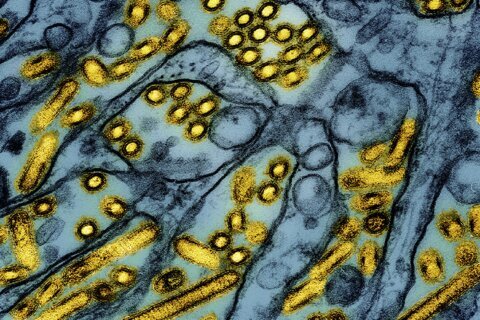ATHENS, Greece (AP) — Authorities in Greece ordered nationwide restrictions for goat and sheep Monday to combat a deadly viral outbreak that is a fresh blow to the domestic livestock industry.
Costas Tsiaras, the minister of agriculture and rural development, announced the ban on the commercial slaughter of goats and sheep as well as movement for reproduction – expanding measures already in effect in parts of central Greece where the outbreak was first reported.
Also known as the “goat plague,” the PPR virus is a highly contagious disease affecting goats and sheep, causing severe illness and death. It has no adverse effect on human health, according to Greek officials.
So far, some 7,000 animals in herds where the disease has been identified have been culled in the hardest-hit central Thessaly region, with another 1,200 to be added early this week, regional governor Dimitris Kouretas said Monday.
Thessaly was also hit by a deadly storm last September that caused severe flooding and widespread damage to livestock farming.
The World Organization for Animal Health, an intergovernmental body based in Paris, describes PPR as “characterized by severe morbidity and mortality rates” with a high economic impact in parts of Africa, the Middle East, and Asia, where goats and sheep are an important source of food.
Copyright © 2024 The Associated Press. All rights reserved. This material may not be published, broadcast, written or redistributed.







